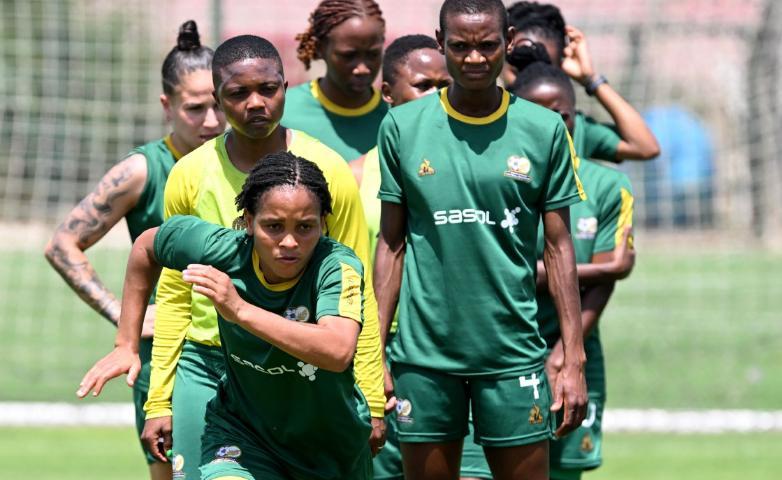Africa-Press – South-Africa. Banyana Banyana resumed training on Saturday after a two-day strike over unpaid bonuses, and Safa has not paid the players — contrary to its claim that the “minor issue” had been resolved.
The team remain unsettled at their base in Morocco ahead of their first Women’s Africa Cup of Nations match, as South Africa begin the defence of their title against Ghana on July 7, a Banyana staff member told Sowetan yesterday.
“The players are not happy. Safa hasn’t paid the money yet, not even a cent. They promised to pay the first batch of bonuses on July 15 and the rest on July 30,” said the insider, who requested anonymity to avoid victimisation.
The insider said the reason players resumed training on Saturday was because they “don’t want to let the nation down” and they feared they may lack fitness if they continue with the protest.
Banyana won their first Wafcon title, also in Morocco, in 2022 and are out to retain the title this year.
“It’s not that the players resumed training because there’s an agreement with Safa,” the insider said.
“They wanted the money immediately, but they didn’t want to let the nation down so they decided to return to the field. They understand they would play unfit if they continue to boycott training sessions.”
On Saturday Safa said the bonus impasse had been resolved, with the association’s vice-president Linda Zwane telling the media after the its congress at Sandton Convention Centre it was over a “minor issue”.
The disagreement is over outstanding bonuses that have not been paid for Banyana’s three friendlies against Malawi and Zambia in April and June.
Banyana and Bafana players pocket R60,000 each for every win and R30,000 for a draw. Having won all three games, Safa apparently owe each Banyana player involved R180,000.
Speaking after the congress, Safa CEO Lydia Monyepao admitted match bonuses were straining their near-empty coffers.
“We need to accept where we are financially as a federation. We do not have sufficient resources. We have to take care of the two national teams because sponsorship has reduced,” Monyepao said.
“At the moment we are struggling. We must revisit the bonus structure because the last thing we want is for our national teams to raise the issue before matches and major tournaments.”
In a move that could trigger further disputes in national camps, Safa indicated it could put a proposal to do away with paying national teams bonuses.
The chair of the association’s finance committee, Mxolisi Sibam, said it was “unsustainable” to keep remunerating players when the money could be used for football development.
“If you look throughout the world, many associations are not paying bonuses. A certain percentage goes to the association and they are only paying daily allowances,” Sibam said.
“This is something we have to put forward as a proposal so we can make sure the organisation survives.”
For More News And Analysis About South-Africa Follow Africa-Press






